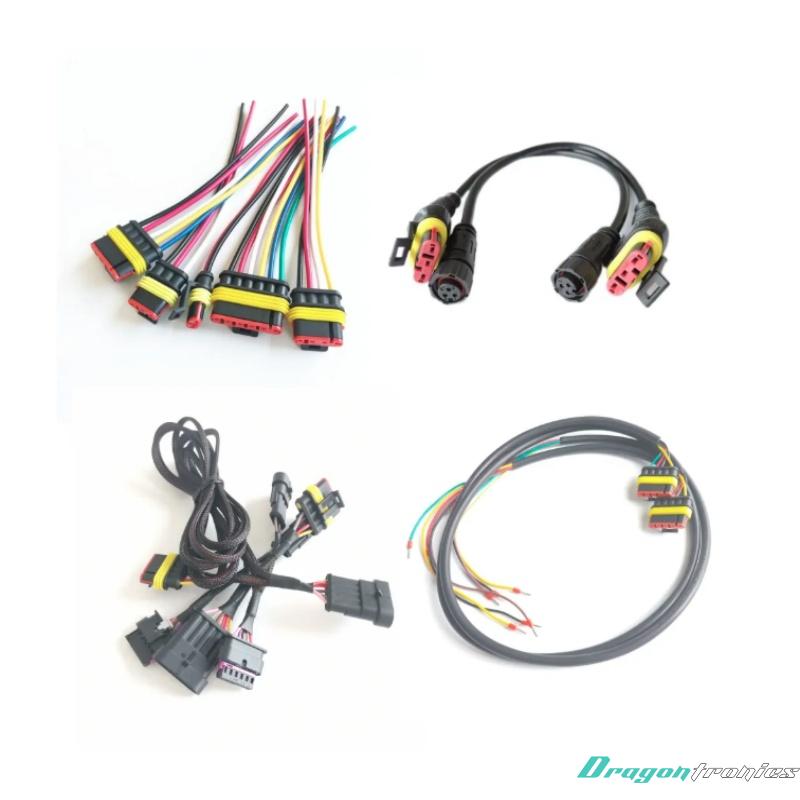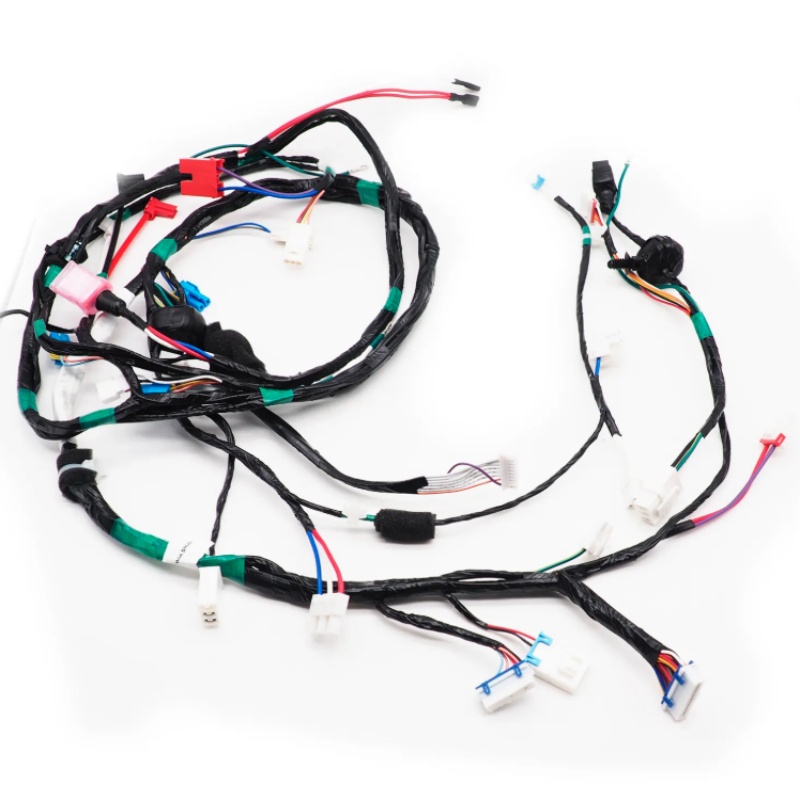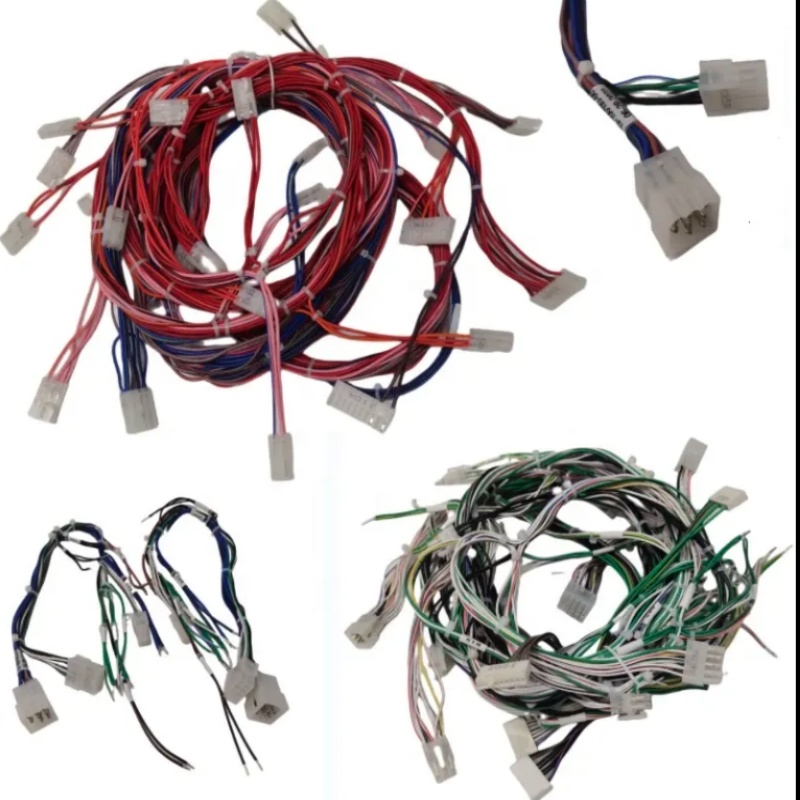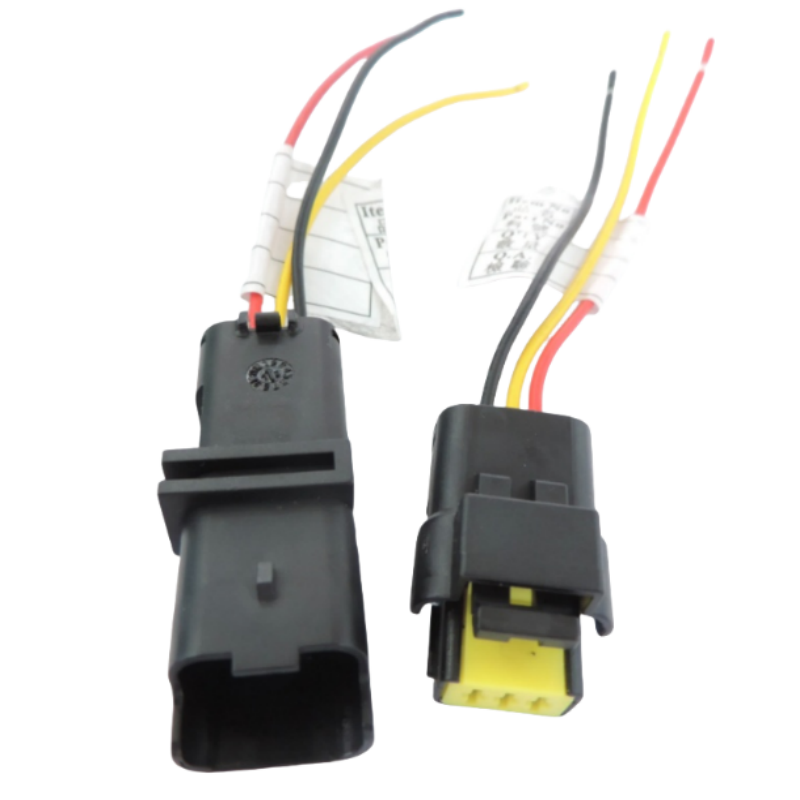Customized Cable & Connector
Customized Industrial Robot Cable Wire Harness
- Product description: Customized Industrial Robot Cable Wire Harness
A Customized Industrial Robot Cable refers to a specialized cable or wiring solution designed to meet the unique demands of industrial robots in automated manufacturing and other robotic applications. These cables are tailored to the specific requirements of robotic systems, which often involve complex movements, high flexibility, and durability under harsh conditions.
Key Features and Characteristics
1. Flexibility:
o Robotic arms and other industrial robots often move in multiple directions (rotation, bending, twisting), requiring cables that can endure these constant motions without breaking or losing performance.
o Customized cables are designed to offer extreme flexibility, especially in high-mobility areas like the joints and arms of robots.
2. Durability:
o Industrial robots work in harsh environments, with exposure to abrasion, temperature fluctuations, chemicals, moisture, and mechanical stress. Customized cables are built to resist these conditions and maintain reliable performance over time.
o They are often constructed with high-quality insulation and reinforced materials to prevent wear and tear.
3. Size and Design:
o These cables are often designed to fit the specific geometry of the robotic system. For example, cables that are routed through tight spaces or along rotating parts may be designed to be compact, lightweight, or flexible enough to prevent kinks or tangles.
o The cable design can include multi-conductor setups, with various wires for power, control signals, data transmission, and sensors all within the same protective sheath.
4. Electrical and Signal Requirements:
o Industrial robots often need high-power cables for motors and actuators, as well as low-voltage cables for communication, data transfer, and sensor connections. Customized cables are engineered to accommodate these varying needs, ensuring safe transmission of power and signals.
o Some cables also support high-speed data transfer, such as those used for Ethernet, fieldbus communication, or robot-to-robot communication.
5. Protective Features:
o Shielding is often added to prevent electromagnetic interference (EMI), especially for data cables.
o Armor or reinforced sheathing may be included to protect against physical damage or abrasions when cables are exposed to rough environments or sharp edges on machinery.
Applications of Customized Industrial Robot Cables
1. Robotic Arms and Automation:
o Welding robots, painting robots, and pick-and-place robots require robust, flexible cables to power the motors, control systems, and sensors that guide their actions.
o The cables must withstand frequent movement, high temperatures, and potential exposure to chemicals or debris.
2. Sensor and Control Wiring:
o Robots often have a variety of sensors (e.g., proximity sensors, temperature sensors, vision systems) that need to transmit data to a controller or computer.
o Customized industrial robot cables are used to wire these sensors to the main control systems, supporting both power and data transfer functions.
3. Mobile Robots:
o In autonomous mobile robots (AMRs), which move through factory floors or warehouses, specialized cables are needed to handle movement, rotation, and environmental exposure.
o These cables must be designed to endure constant motion while ensuring the delivery of power and data to the robot’s motor and sensors.
4. Collaborative Robots (Cobots):
o Cobots work alongside human operators and require advanced, often lighter cables with the flexibility to move safely and efficiently. The cable design for cobots may also include features to prevent tangling or damage during human-robot interactions.
5. Industrial CNC Machines and Automation Systems:
o Robots used in conjunction with CNC (Computer Numerical Control) machines or automated assembly lines require reliable cables for power, communication, and data. The cables must support the seamless integration of robots into automated production systems.
6. Energy Chains and Cable Carriers:
o Customized cables are often used in energy chains or cable carriers, which protect and guide cables along the robotic arm’s moving parts. These systems ensure that cables are not damaged by bending, twisting, or excessive movement during operation.
7. High-Precision Applications:
o In robotics used for precise tasks, such as surgical robots, inspection robots, or micro-manipulators, cables must be customized to ensure minimal interference and maintain signal integrity, even in extremely small or delicate operations.
Conclusion
A Customized Industrial Robot Cable is a highly specialized, durable, and flexible cable designed to meet the exacting needs of industrial robots. These cables play a critical role in ensuring that robots can perform complex, repetitive tasks in harsh and dynamic environments, while maintaining reliable electrical connections for power, data, and control. Whether it's for manufacturing robots, mobile autonomous robots, or collaborative robots, a well-designed cable can significantly improve performance, safety, and longevity.
Categories
Latest News
Contact Us
Contact: Fiona Wu
Phone: 86 - 173 28414 818
Tel: 86 - 173 28414 818
Add: 20, Changtian Road, Hengli, Dongguan, Guangdong, 523852, China




 Lankecms
Lankecms lankecms
lankecms
 Lankecms
Lankecms